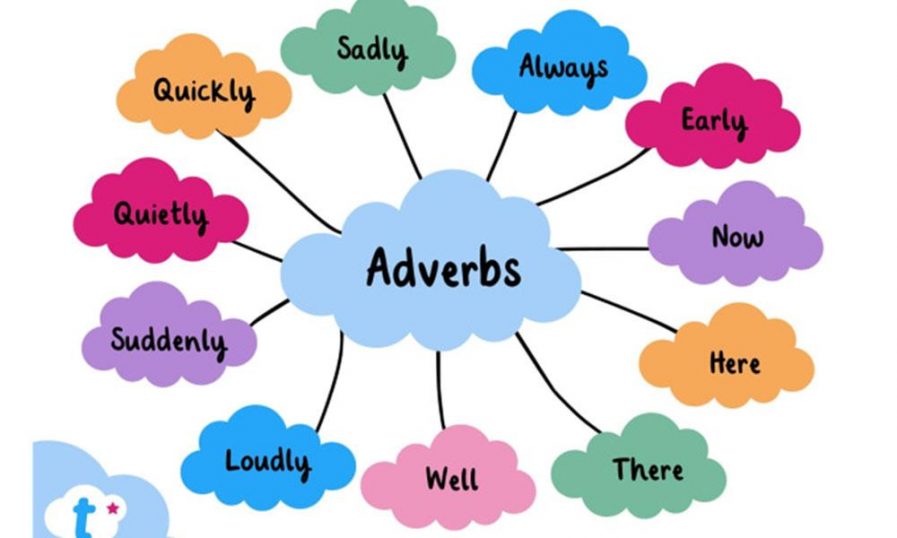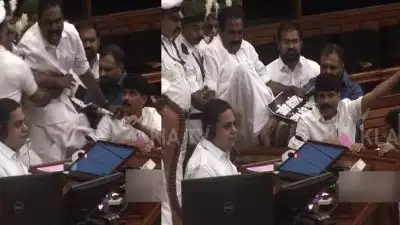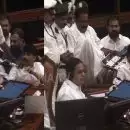Aksharam Education
Common Mistakes in the Usage of Adverbs
പലരും adverbs ഉപയോഗിക്കുമ്പോൾ പിശകുകൾ വരുത്താറുണ്ട്. ചിലപ്പോൾ adjective ഉപയോഗിക്കേണ്ടിടത്ത് adverb ഉപയോഗിക്കുന്നു

ഇംഗ്ലീഷിൽ adverbs എന്നത് ഒരു verb, adjective, അല്ലെങ്കിൽ മറ്റൊരു adverb ന്റെ പ്രവൃത്തിയെ വ്യക്തമാക്കാനാണ് ഉപയോഗിക്കുന്നത്. ഇവ പ്രവൃത്തിയുടെ സ്വഭാവം, സമയം, സ്ഥലം, അളവ് എന്നിവ വ്യക്തമാക്കുന്നു. പക്ഷേ, പലരും adverbs ഉപയോഗിക്കുമ്പോൾ പിശകുകൾ വരുത്താറുണ്ട്. ചിലപ്പോൾ adjective ഉപയോഗിക്കേണ്ടിടത്ത് adverb ഉപയോഗിക്കുന്നു.ചിലപ്പോൾ വാക്കുകളുടെ സ്ഥാനം തെറ്റിക്കുന്നു, ചിലപ്പോൾ “too’, “very’, “much’ തുടങ്ങിയവയെ തെറ്റായി ഉപയോഗിക്കുന്നു. ഇവയെ ശരിയാക്കുന്നത് നമ്മുടെ ഇംഗ്ലീഷ് ഭാഷാ പ്രാവീണ്യത്തിന് വളരെ സഹായകരമാണ്.
1 Confusing Adjectives with Adverbs
(Adjective-Adverb ഉം മാറിപ്പോകൽ)
- Wrong: She sings beautiful.
- Correct: She sings beautifully.
അവൾ മനോഹരമായി പാടുന്നു. - Wrong: He spoke angry.
- Correct: He spoke angrily.
അവൻ കോപത്തോടെ സംസാരി
ച്ചു.
2 Double Negatives
- Wrong: I don’t know nothing
about it. - Correct: I don’t know anything
about it.
എനിക്കതിനെക്കുറിച്ച് ഒന്നും അറി
യില്ല. - Wrong: She hasn’t never been late.
- Correct: She has never been late.
അവൾ ഒരിക്കലും വൈകിയിട്ടില്ല.
3 Wrong Position of Adverbs
- Wrong: She goes always to
school early. - Correct: She always goes to school
early.
അവൾ എല്ലായിപ്പോഴും നേരത്തേ
സ്കൂളിൽ പോകുന്നു. - Correct: He is always late.
അവൻ എപ്പോഴും വൈകും.
4 Using “Very’ with Comparatives or
Superlatives
(“Very’ തെറ്റായി ഉപയോഗിക്കൽ)
- Wrong: She is very better now.
- Correct: She is much better now.അവൾക്ക് ഇപ്പോൾ ഏറെ മെച്ച
പ്പെട്ടിരിക്കുന്നു. - Wrong: This is very the best
book. - Correct: This is by far the best
book.
ഇത് ഏറ്റവും മികച്ച പുസ്തക
മാണ്.
5 Confusing “Too’, “Very’, and ‘Much’
(Too, Very, Much – വ്യത്യാസം)
- Wrong: The tea is very hot to
drink. - Correct: The tea is too hot to drink.
ചായ കുടിക്കാൻ അത്യധികം ചൂടാണ്. - Wrong: She is too
beautiful. - Correct: She is very
beautiful.
അവൾ വളരെ മനോഹ
രിയാണ്.
6 Using “Never’ with Past Tense Instead of Present Perfect
- Wrong: I never saw such
a thing. - Correct: I have never
seen such a thing.
അത്തരം കാര്യം ഞാൻ
ഒരിക്കലും കണ്ടിട്ടില്ല.
7 Misplacing “Only’
- (“Only’ വാക്കിന്റെ സ്ഥാനം ശ്രദ്ധിക്കുക)
- Only I saw the thief. മറ്റാരും കണ്ടില്ല.
- I only saw the thief. ഞാൻ കണ്ടു, പിടിച്ചില്ല.
- I saw only the thief. ഞാൻ കള്ളനെ കണ്ടു.
8 Confusing “Hard’ and ‘Hardly’
- Wrong: He worked hardly.
- Correct: He worked hard.
അവൻ വളരെ കഠിനമായി പ്രവർ
ത്തിച്ചു. - Example: He hardly works. = അവൻ ഒരുപാട് പ്രവർത്തിക്കാറില്ല.
9 “Lately’ vs “Late’
- Wrong: Have you seen him late?
- Correct: Have you seen him lately?
അവനെ അടുത്തിടെ കണ്ടോ?
10 “Fast’, “Hard’, and “Early’ – Don”t Add
“ly’
- Wrong: He runs fastly.
- Correct: He runs fast.
അവൻ വേഗത്തിൽ ഓടുന്നു. - Wrong: She came earlyly.
- Correct: She came early.
അവൾ നേരത്തേ വന്നു.















